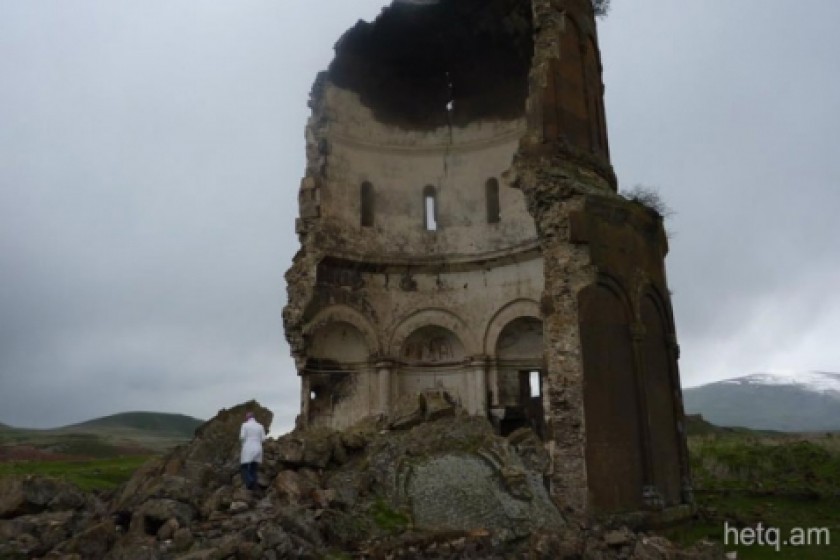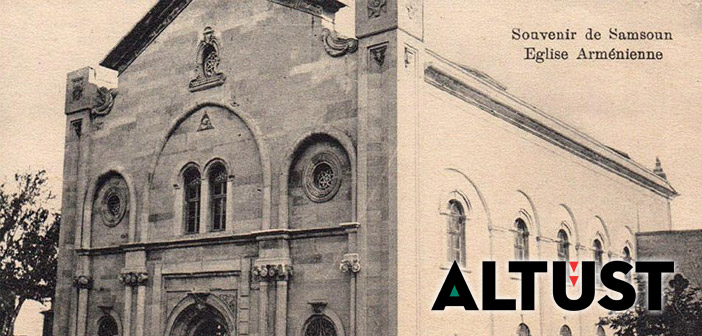Re: Western Armenians
DOCUMENTARY FILM EXPOSES TURKISH STATE POLICY OF ERASING WESTERN ARMENIAN CULTURAL TRACES
14:19, January 25, 2013
January 24 saw the premier of the documentary film "Crime after the
Great Crime", exposing the ongoing Turkish state policy of destroying
all traces of Armenian culture in Western Armenia.
Prepared by the Research on Armenian Architecture Foundation, the
film chronicles the situation of Western Armenian cultural monuments
before and after the 1915 Genocide.
The film states that pre-1915 there were approximately 170,000 cultural
monuments in Western Armenia of which a mere 2-3% remain intact today.
The video, in eastern Armenian, is narrated by Samvel Karapetyan.
DOCUMENTARY FILM EXPOSES TURKISH STATE POLICY OF ERASING WESTERN ARMENIAN CULTURAL TRACES
14:19, January 25, 2013
January 24 saw the premier of the documentary film "Crime after the
Great Crime", exposing the ongoing Turkish state policy of destroying
all traces of Armenian culture in Western Armenia.
Prepared by the Research on Armenian Architecture Foundation, the
film chronicles the situation of Western Armenian cultural monuments
before and after the 1915 Genocide.
The film states that pre-1915 there were approximately 170,000 cultural
monuments in Western Armenia of which a mere 2-3% remain intact today.
The video, in eastern Armenian, is narrated by Samvel Karapetyan.






Comment